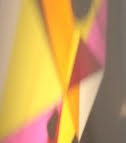light forms...

images from lewis wright's light, published in 1882.
"as the physicist nears the confines of his kingdom... he finds himself compelled to speculate on invisible presences, if only to find a rational explanation for undoubted physical phenomena, and insensibly he slips over the boundary, and is, although he does not yet realize it, contacting the astral plane."
although seemingly connected to these images, this text is not from wright's book of science experiments; but written several years later in the introduction to annie besant and c.w. leadbetter's book thought forms. i wonder if besant and leadbetter were familiar with wright's images, and had them in mind when they wrote about a scientist moving beyond the rational.
wright's images are so compelling one wants to give them mystical connotations - and yet what could be more mystical than their rational explanations. the images transcend their rationality to exist as beautiful things, with visual poetic power greater than their intended meanings. where besant and leadbetter tend to rationalize the mystical to give proof of its existence; wright simply shows natural phenomenon in all its mystical and provocative beauty.
Labels: abstraction, light, science, theosophy



2 Comments:
These are just beautiful images and text…I wasn’t aware of this book, though I love scientific works that also exist poetically…and poetry/narrative that has been informed by the study of science. Some of my favorite authors/artists (and, seemingly, most mystical in that the work appears to touch upon the absolute while looking at the natural world) began life as scientists…botanists in particular.
yeah, i was totally blown away by the images.i don't think this book is particularly famous. i looked it up online and couldn't find much on lewis wright. there were a lot of books like this at the time, with science experiments that seem mundane, but the descriptions and visual illustrations are quite poetic. indeed this merging of the natural world and the mystical was powerful at this time, particularly as you mention, in literature and poetry. i love a lot of german and scandinavian literature from this time for those reasons...
Post a Comment
<< Home